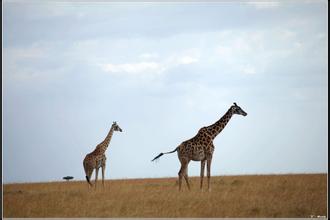By Dicta Asiimwe
East Africa received a mixed bag of results in doing business in the latest report by World Bank; with Rwanda and Kenya leading while Burundi, South Sudan and Somalia brought up the rear.
The World Bank cited implementation of projects meant to improve trading across borders as key to the good showing while civil strife hampered those countries that did poorly.
According to the World Bank’s Doing Business 2017 report, Rwanda — ranked 56 from last year’s 59 — remains the easiest place to start a business in the region. Rwanda is also the second easiest country within which to do business in sub-Saharan Africa after Mauritius, which is ranked 49th.
Kenya — the bloc’s biggest economy — though at second place, was the most improved, moving 21 places up the ranking from 113 last year to 92. Uganda is ranked at 115 from last year’s 122, while Tanzania moved to position 132 from 144.
Troubled by civil strife, Burundi is ranked at 157. South Sudan, another East African country dogged by incessant conflict, was ranked at 186, four places short of being the worst performing country in the world. At 190, Somalia which also suffers the debilitating effects of war, terrorism and a fledgling government is ranked as the worst country to start a business in the world.
Rwanda saw its biggest improvement in its trading across borders measure, having moved 44 places from last year’s position of 131 to position 87 now. Uganda moved up five places in the trading across borders measure, while Kenya moved up two places.
Tanzania, which was hailed for improvements at Dar es Salaam Port, remained in the same position of 180 in the trading across borders measure due to the country’s high border compliance costs for importers and exporters.
Access to credit
But, Tanzania improved its overall ranking because of its rating in improving access to credit where the country moved up 108 places from last year’s 152 to 44 this year.
The country’s credit bureau system, which had by January 2016 registered 6.5 per cent of the adult population, is expected to ease the cost of borrowing money.
According to the World Bank doing business manager Rita Ramalho, 10 measures were used to come up with the ranking.
They are: Starting a business; dealing with construction permits; getting electricity; registering property; getting credit; protecting minority investors; paying taxes; resolving insolvency; enforcing contracts and trading across borders.
According to the World Bank’s Doing Business 2017 report, the East African Community did well in the trading across borders measure on account of several investments that have mostly been financed by TradeMark East Africa. These include investments in improvement of infrastructure at the region’s different entry points.
World Bank officials highlighted improvements at the Dar es Salaam Port, the construction of one-stop border posts in the region and the improvement of tax payment systems.
Ms Ramalho said measures such as resolving insolvency, protecting minorities and providing electricity remain a challenge in sub-Saharan Africa.
“More political momentum is necessary for these reforms as they are difficult to implement,” she said.
However, Kenya managed to implement reforms in resolving insolvency, protecting minorities and providing electricity, which are considered.
Kenya uses a geographic information system to connect electricity, which eliminates the need to conduct a site visit and saves on time.
Reformers
In the area of protecting minorities, the government introduced greater requirements for disclosure of related-party transactions to the board of directors.
“Kenya made it easier to sue directors in cases of prejudicial related-party transactions and allowed the rescission of related-party transactions,” said Ms Ramalho.
The country was among the 10 best reformers in the world. The other nine are Bahrain, United Arab Emirates, Georgia, Pakistan, Serbia, Indonesia, Kazakhstan, Belarus and Brunei Darussalam.
In Uganda, Private Sector Foundation executive director Gideon Badagawa said a combination of factors, including failure to follow up on plans and policies both in government and the private sector, are to blame for the country’s failure to improve its ranking. “We are in the same environment as Rwanda, but they are ranked 56 while we are still at 115,” he observed.
Mr Badagawa blames the difference between the two countries’ ranking on poor attitude towards work in Uganda, and a lack of efficiency in sectors where money has been invested.
The latest loan given to Uganda’s competitiveness and enterprise development project by the World Bank was meant to ease land and property registration and improve the business licensing regime. But the results are slow in coming.
The challenge of slow progress is also being experienced in Tanzania, where the World Bank has invested in the competitiveness project over the past ten years, which involves improving land and property registration procedures, as well as easing the business licensing regime. But officials from both Uganda and Tanzania are hopeful that the the World Bank’s competitiveness loan will start having an impact soon.

